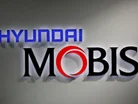Hyundai Mobis Unveils New EV Battery Cooling Technology

Hyundai Mobis, a global leader in automotive technology, has unveiled its latest innovation to address one of the most pressing challenges in EV technology: battery overheating during ultra-fast charging.
The company’s new Pulsating Heat Pipe (PHP) technology promises to enhance thermal management, reduce charging times and improve battery safety.
A breakthrough in battery cooling
Hyundai Mobis’ PHP technology leverages cutting-edge materials and design to improve heat dissipation between EV battery cells.
Constructed from aluminium alloy and refrigerant, the PHP system stabilises battery temperatures during rapid charging, ensuring a safer and more efficient process.
By securing world-class battery cooling technology, Hyundai Mobis aims to solidify its position as a leader in the future mobility market.
How pulsating heat pipes work
Heat pipes are not new; they’ve been widely used to cool high-performance electronics like computer CPUs and smartphones. Hyundai Mobis has adapted proven technology to meet the unique challenges of EV batteries.
Unlike traditional heat pipes, pulsating heat pipes diffuse heat through the vibration and circulation of refrigerant inside ultra-thin tubes.
The method offers more than ten times the heat transfer efficiency of standard aluminium, effectively moving heat from overheated battery cells to cooling blocks, even under the high demands of a moving vehicle.
The PHP design ensures performance stability regardless of gravity, a critical feature for vehicles that experience constant motion and vibration.
Enhancing EV battery safety and performance
EV battery systems typically include various cooling mechanisms, such as battery management systems (BMS), cooling fans and other components.
However, as battery cells generate intense heat during ultra-fast charging, optimising cooling structures at the module level is crucial.
Hyundai Mobis has integrated PHPs directly between individual battery cells, enabling rapid heat transfer to cooling blocks. The innovation maintains stable internal temperatures across the battery module, significantly reducing the risk of overheating.
Efficient manufacturing meets advanced design
Hyundai Mobis has streamlined the manufacturing process to ensure scalability and cost efficiency.
The company employs a press process for large-scale PHP production, reducing production costs and making the technology commercially viable.
One of the standout features of this new cooling system is its size. At just 0.8 mm thick, the PHPs are far thinner than traditional heat pipes, which average about 6 mm. The slim design maximises space efficiency while delivering superior cooling performance.
Paving the way for EV adoption
Hyundai Mobis’ innovative approach aligns with the growing demand for EVs by addressing two critical consumer concerns: charging time and safety. By minimising battery overheating risks and reducing charging times, the PHP technology contributes to the broader adoption of EVs.
“With this technology, we’re not only improving performance but also promoting the mainstream appeal of electric vehicles.”
As the EV market expands, innovations like Hyundai Mobis’ Pulsating Heat Pipe technology are vital to addressing key battery performance and safety challenges. The company’s commitment to advancing thermal management systems is poised to set a new benchmark in the industry, ensuring a safer, faster and more efficient future for EVs.
Explore the latest edition of EV Magazine and be part of the conversation at our global conference series, Sustainability LIVE and Manufacturing LIVE.
Discover all our upcoming events and secure your tickets today.
EV Magazine is a BizClik brand.


